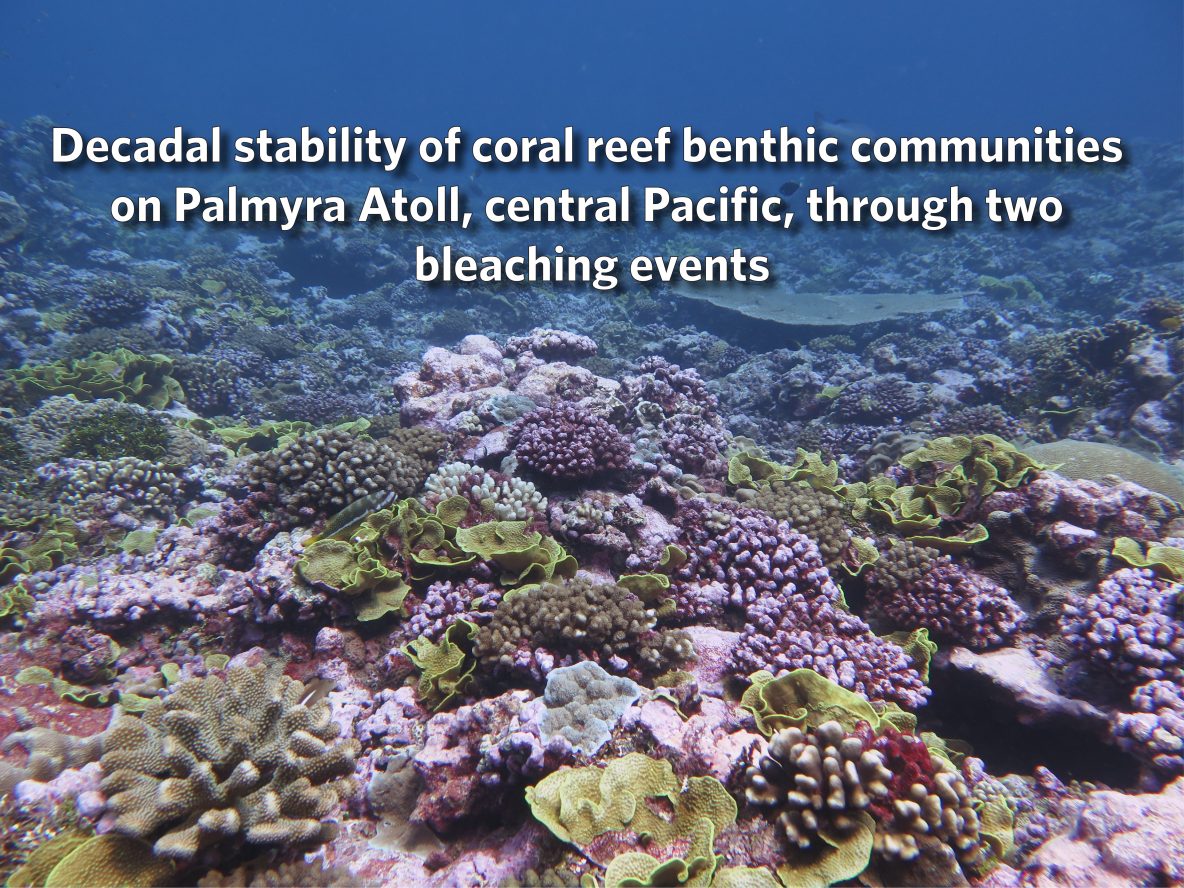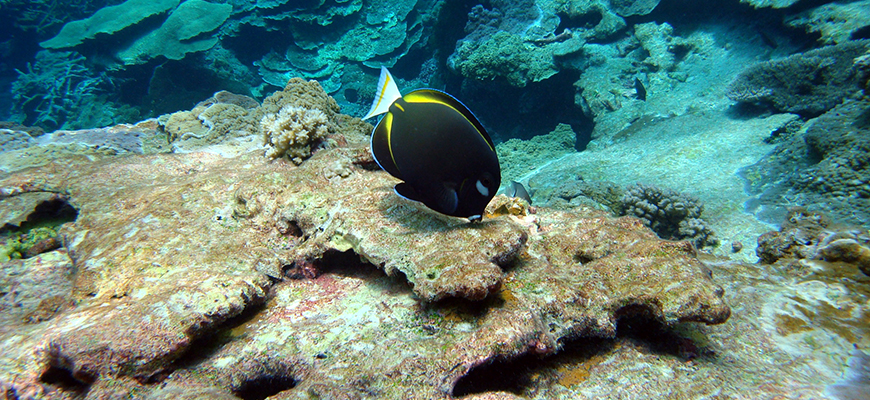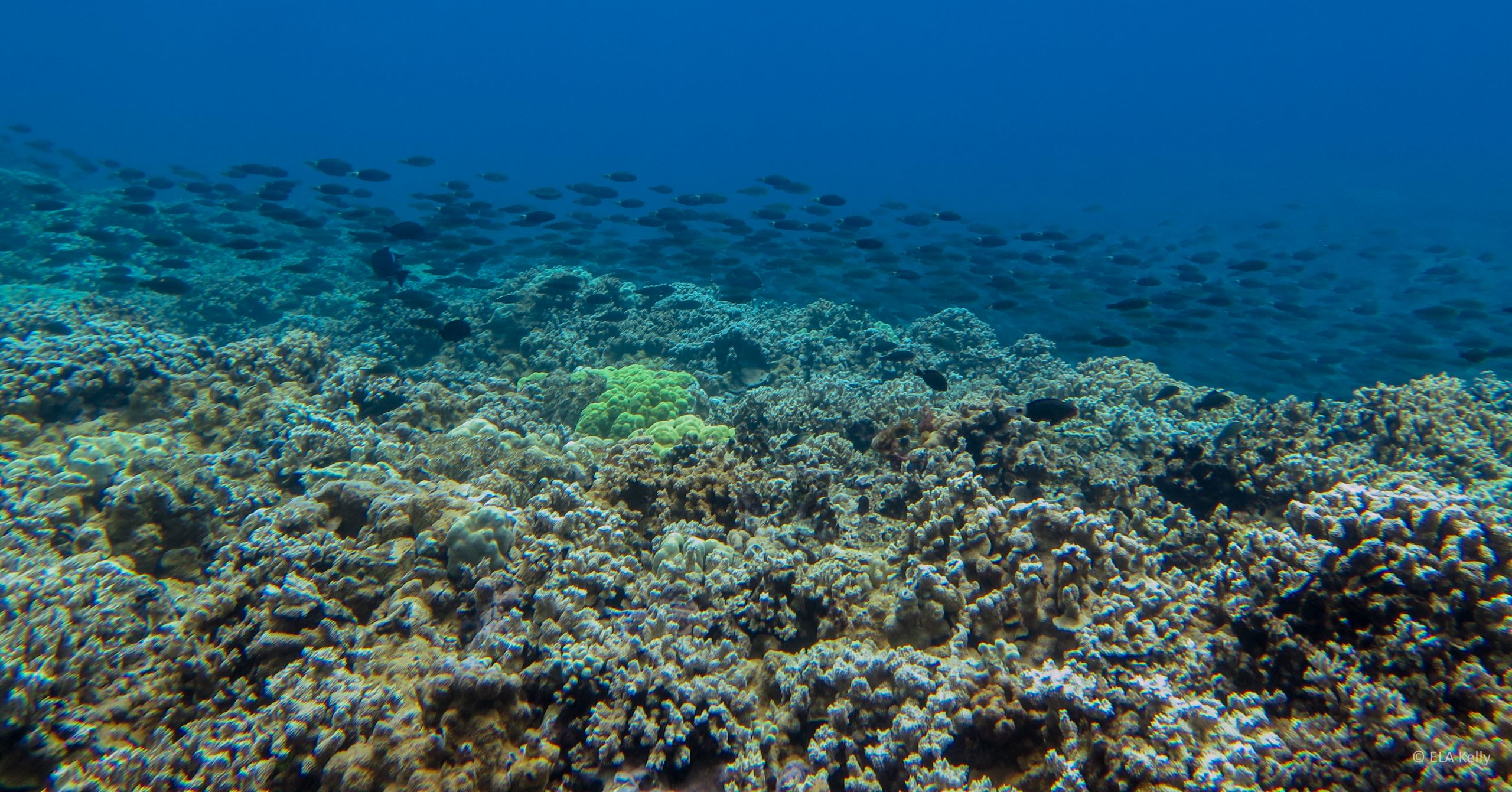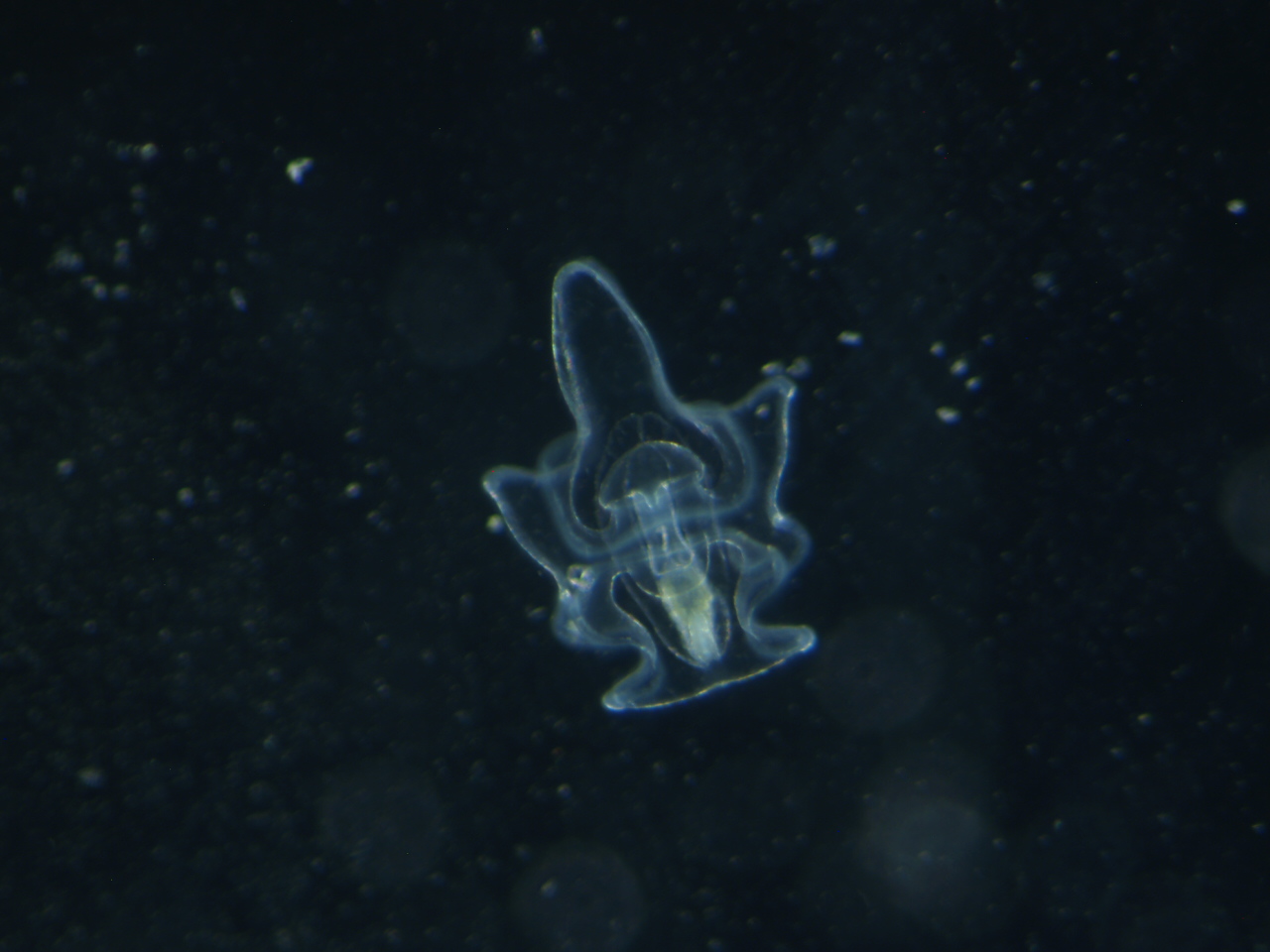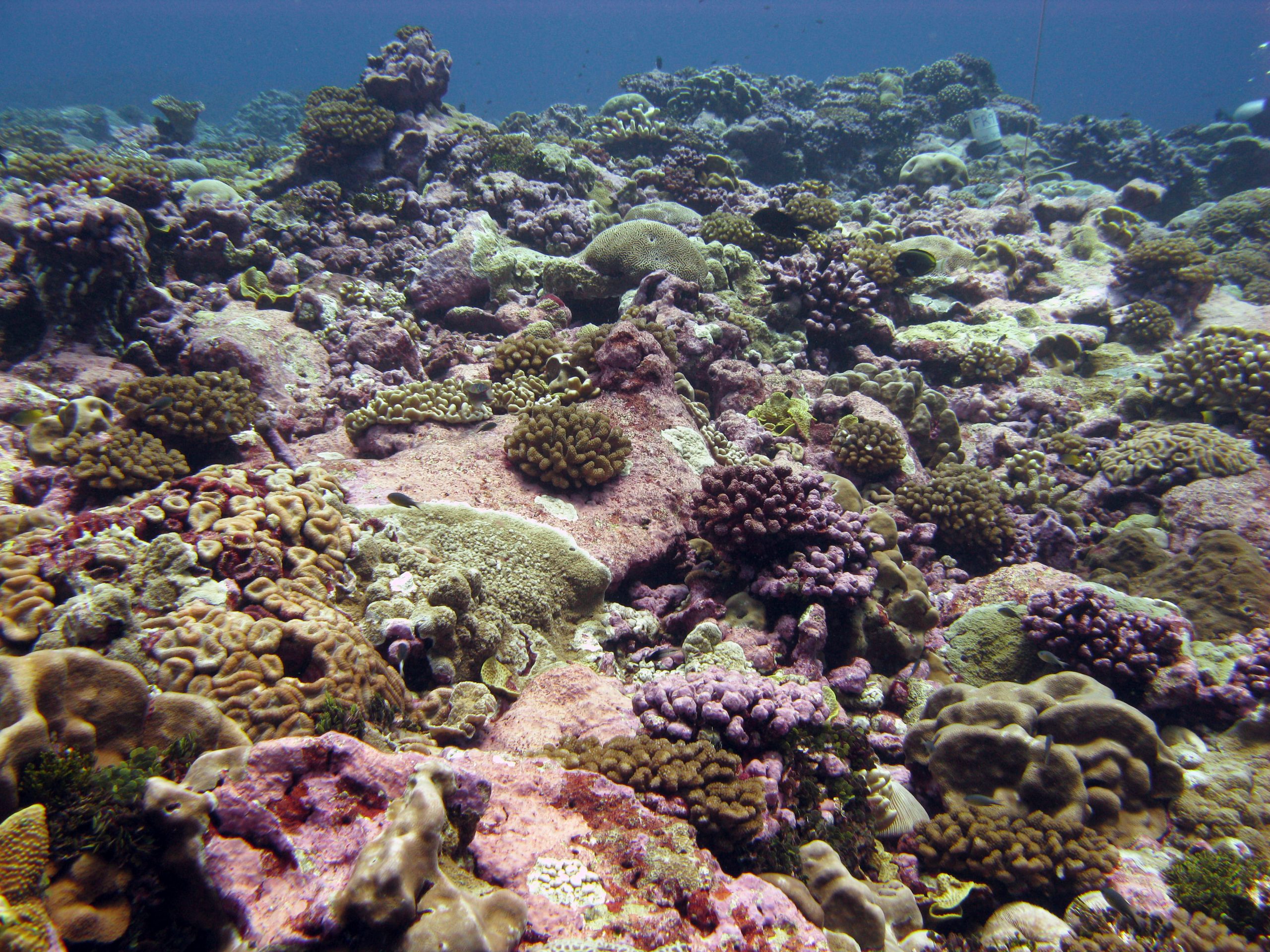Although many coral reefs are facing devastating declines due to global climate change, some reefs, such as at the remote Palmyra Atoll, are able to withstand and recover from bleaching. This recently-published paper, led by Ph.D. candidate Adi Khen and co-authored by lab alumni/staff with senior author Dr. Jennifer Smith, demonstrates the remarkable resilience of Palmyra’s reefs over the past … Read More
An incredible story of reef recovery after coral bleaching at Palmyra Atoll
Scripps Oceanography published a press release this week celebrating the Smith Lab’s most recent publication led by Dr. Mike Fox. The paper, published in Coral Reefs on April 5th, reveals an optimistic recovery of coral reefs at Palmyra Atoll following the 2015 global bleaching event. In 2015, 90% of corals at Palmyra bleached, and an astounding 90% of those bleached corals … Read More
100IC team featured in bioGraphic while on expedition in the Cook Islands
Researchers from the 100 Island Challenge team were interviewed for a piece in bioGraphic in January on an expedition to Rarotonga in the Cook Islands. The article, “Picture of Health,” published online last week, details the daily life of researchers in the field and shares the team’s optimistic view of coral reef health in areas where local managers are making waves to … Read More
New study by SIO alum, Dr. Maggie Johnson, reveals how turf algae fare in the face of global change
Dr. Maggie Johnson, a recent Smith Lab PhD grad, recently published a study in the journal Coral Reefs revealing how epilithic and endolithic algae (that is, algae that grows on top of and beneath the surface of “rocks”, respectively) respond to increasing ocean temperature and acidification (lower pH). Samples were collected from turf-covered substrate in Moorea, and were exposed for … Read More
Herbivore management may be the key to balancing the energetic budget on coral reefs
A new paper published by Emily Kelly and colleagues explains how we can balance the energetic budget on Hawaiian coral reefs through herbivore management and protection. Herbivores on coral reefs play an important role in controlling algal growth, but in systems where density of herbivores is low, algae can grow at a faster rate than they are consumed, resulting in a … Read More
Smith lab & colleagues publish new paper looking at zooplankton on coral reefs
Most coral reef scientists study charismatic organisms, such as corals and fish, while very few scientists focus on plankton. Since coral reefs have an abundance of beautiful and colorful creatures, small and inconspicuous plankton may be less attractive to many coral reef scientists. Of the few existing coral reef plankton studies, most of them are either bacterioplankton or phytoplankton, which are “relatively” … Read More
Smith lab and colleagues find that Crown of Thorns (COTS) larvae can take up organic matter derived from corals
Crown-of-Thorns Starfish Larvae can feed on Organic Matter Released from Corals Ryota Nakajima, Nobuyuki Nakatomi, Haruko Kurihara, Michael D. Fox, Jennifer E. Smith, and Ken Okaji Abstract: Previous studies have suggested that Crown-of-Thorns starfish (COTS) larvae may be able to survive in the absence of abundant phytoplankton resources suggesting that they may be able to utilize alternative food sources. Here, … Read More
Smith lab and colleagues present an autonomous approach to measure coral reef net calcification and production rates
Assessment of net community production and calcification of a coral reef using a boundary layer approach Abstract: Coral reefs are threatened worldwide, and there is a need to develop new approaches to monitor reef health under natural conditions. Because simultaneous measurements of net community production (NCP) and net community calcification (NCC) are used as important indicators of reef health, tools are … Read More
Smith lab and colleagues publish new paper looking at microbes on coral reefs
Global microbialization of coral reefs Abstract: Microbialization refers to the observed shift in ecosystem trophic structure towards higher microbial biomass and energy use. On coral reefs, the proximal causes of microbialization are overfishing and eutrophication, both of which facilitate enhanced growth of fleshy algae, conferring a competitive advantage over calcifying corals and coralline algae. The proposed mechanism for this competitive … Read More
Scientists measure the ‘beauty’ of coral reefs
Dr. Smith and co-authors from San Diego State University, the Getty Research Institute, and the Scripps Institution of Oceanography recently published a paper in PeerJ entitled: ‘Can we measure beauty? Computational evaluation of coral reef aesthetics.’ “Our results suggest that our perception of aesthetics is well-aligned with healthy, thriving ecosystems,” said Andreas Haas, an SDSU postdoctoral scholar and primary researcher of … Read More
- Page 1 of 2
- 1
- 2


